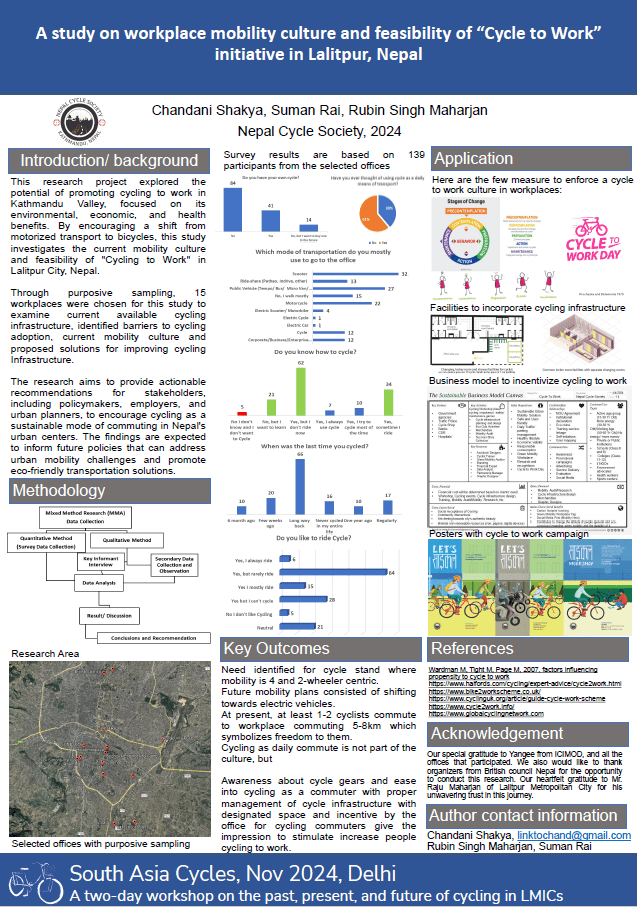A study on workplace mobility culture and feasibility of “Cycle to Work” initiative in Kathmandu Valley, Nepal

This research project explored the potential of promoting cycling to work in Kathmandu Valley, focused on its environmental, economic, and health benefits. By encouraging a shift from motorized transport to bicycles, this study investigates the current mobility culture and feasibility of “Cycling to Work” in Lalitpur City, Nepal.
Through purposive sampling, 15 workplaces were chosen for this study to examine current available cycling infrastructure, identify barriers to cycling adoption, and current mobility culture and propose solutions for improving cycling infrastructure. A mixed method with 15 key informant interviews, 139 surveys with employees, and observation in the site was used to get the results. Most of the workplaces didn’t have cycle stands and none had provision for changing and showers for the cycling employees. All the workplaces had at least 1 person cycling to work, the majority knew how to cycle but didn’t know about gears that would ease their journey in the terrains of the city. Most people were willing to cycle to work but the barriers were safety, lack of provision, and lack of culture of taking cycling as a dignified mode of transport.
Comprehensive trip end facility, incentives for cycling employees, technical cycling training for gear use and repair, and increased cycling culture were the contributing factors for people to cycle to work.
